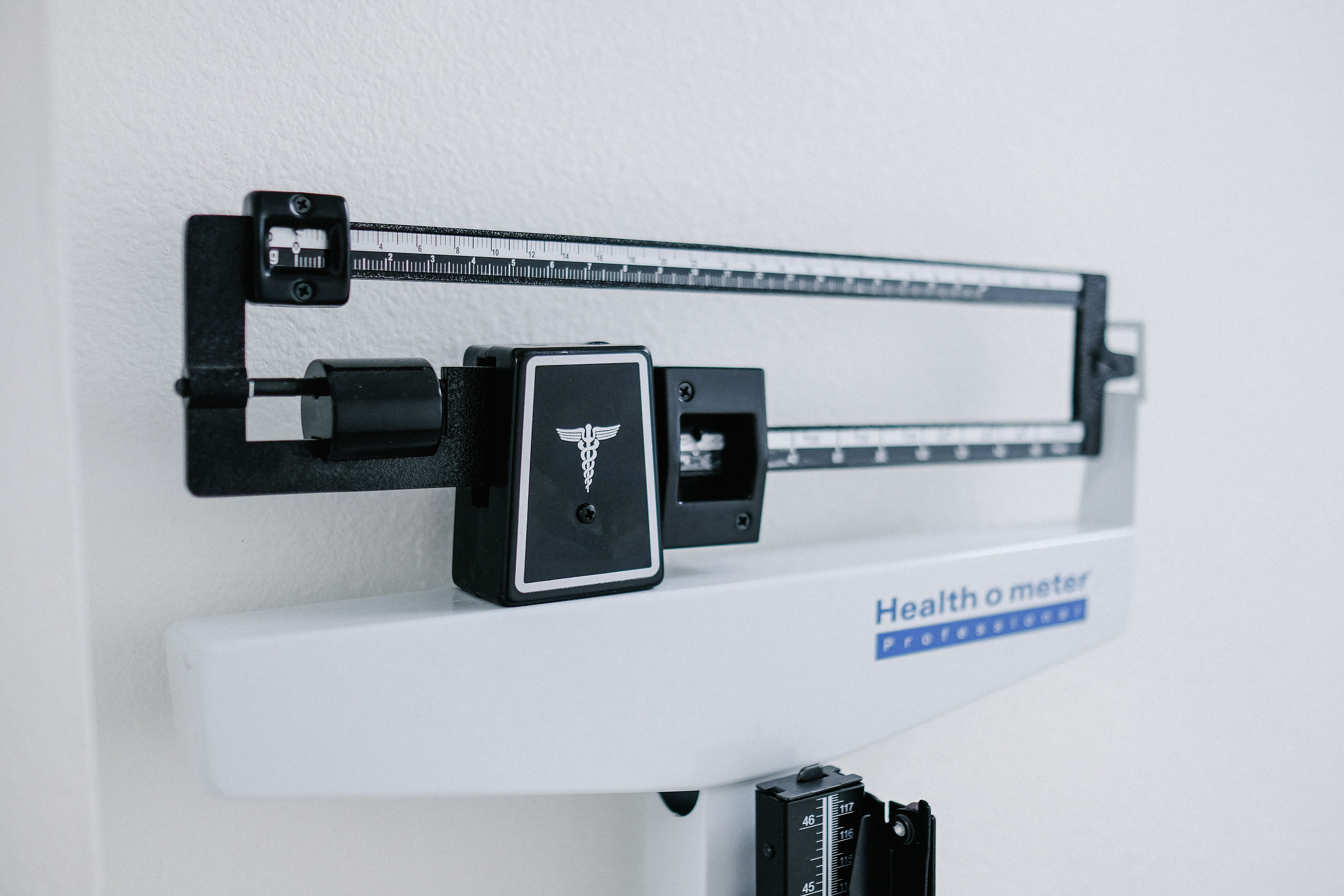When it comes to weight loss, two popular methods often come up for discussion: Weight Watchers (now known as WW) and calorie counting. But which one is more effective for achieving your health goals? I’ve compared the pros and cons of each method in depth and we are going to explore: Weight Watchers vs calorie counting. If you are debating trying either of these weight loss plans then hopefully this post will fill in a few blanks to help you decide!
Weight Watchers and calorie counting are among the most popular weight loss programs because they offer structured yet flexible ways to manage food intake. Whether you’re looking to shed a few pounds, maintain your current weight, or build a healthier eating pattern, understanding these approaches will help you make the better choice for your unique needs.
As always, before undertaking any kind of weight loss or lifestyle change, it is always best to speak to a medical professional or registered dietician who is best suited to give personalised advice on your individual health needs and health issues. This blog post has been researched to the best of my ability, and the information posted is accurate at the time of publication. Soph-obsessed is not affiliated in any way with WW. The information in this article is included for comparison only. For up-to-date information on all aspects of the WW plan visit their website directly.

What is Weight Watchers?
Before we get into the comparisons let’s summarise what each plan is in its own right. Weight Watchers, now rebranded as WW, is a weight management program that uses a point system rather than counting calories to help members track their food intake and manage their weight.
Instead of focusing on the number of calories consumed, foods are assigned a point value based on their nutritional content. The healthier the food, the lower the number of points it carries. This system encourages members to choose more whole grains, lean proteins, and non-starchy veggies while avoiding foods with high amounts of sugar and saturated fat.
A key feature of the WW program is the inclusion of ZeroPoint™ foods, which are foods that can be consumed without worrying about tracking them. These include items like leafy greens, chicken breast, and eggs. This unique approach helps members eat more nutrient-dense foods without constantly worrying about the number of points they’re consuming.

How Does Weight Watchers Work if It Doesn’t Count Calories?
While Weight Watchers doesn’t explicitly count calories, it indirectly controls caloric intake by using its points system. The SmartPoints™ system is based on the latest nutritional science, assigning each food a point value based on its protein, sugar, saturated fat, and overall calorie content. This way, members are nudged towards healthier food choices, which naturally leads to a reduced number of calories consumed each day.
Why Do Weight Watchers Use Points Instead of Calories?
The WW points system is designed to simplify weight management. The concept is that using points makes it easier for members to make healthier choices without getting bogged down by calorie counting. This approach focuses more on developing healthy habits rather than strictly adhering to a caloric intake goal.
What is Calorie Counting?
Calorie counting is one of the oldest and most straightforward methods for weight loss. It involves keeping track of the number of calories you consume each day to ensure you stay within a calorie deficit—meaning you consume fewer calories than your body needs to maintain its current weight. By creating a calorie deficit, your body starts to burn stored fat for energy, leading to fat loss over time.
Calorie counting is often used in collaboration with calorie-counting apps, which help users log their food and activity levels. Many people find calorie counting helpful because it provides a clear picture of their caloric intake and how it relates to their overall weight loss goals. It’s a great way to understand the relationship between what you eat and how it affects your body.
Weight Watchers vs Calorie Counting: Key Differences
When comparing Weight Watchers vs calorie counting, it’s essential to understand that both have unique approaches:
Weight Watchers (WW) Uses a Points System: Instead of focusing on the number of calories, WW assigns points to foods based on their nutritional value. Healthier foods have lower point values, while less nutritious foods have higher values.
Calorie Counting Focuses on Total Calorie Intake: Calorie counting, on the other hand, is all about the numbers. Every food is tracked based on its calorie content, which makes it easier to create a calorie deficit for weight loss.
WW Offers a More Holistic Approach: WW is not just about food; it also emphasizes physical activity, mental health, and behaviour change to support a sustainable and healthier pattern of living.
Calorie Counting is More Direct: Calorie counting allows you to see exactly how many calories you’re consuming, making it a better choice for those who prefer a numbers-based approach.
Pros and Cons of Weight Watchers
Pros:
- Simplified Tracking: The WW points system makes tracking food less tedious compared to counting individual calories.
- Encourages Healthier Food Choices: WW’s focus on nutrient-rich foods like lean proteins, whole grains, and leafy greens helps promote healthier eating habits.
- Flexibility with ZeroPoint Foods: Members can enjoy zeropoint foods like fruits and vegetables without feeling restricted.
- Emphasizes Overall Wellness: The WW program considers mental health, behaviour change, and physical health, not just food.
Cons:
- Point Value Complexity: Some may find the point system complicated and prefer a more straightforward method like calorie counting.
- Cost: The WW program requires a membership fee, and additional costs can arise if you want to access features like the WW app or personal coaching.
- Lack of Focus on Calorie Deficit: For those who want direct control over their calorie goal, the point system might not be specific enough.
Pros and Cons of Calorie Counting
Pros:
- Complete Control Over Caloric Intake: You know exactly how many calories you’re eating and can easily create a calorie deficit.
- No Membership Fee: Many calorie counter apps are free, making it an affordable weight loss method.
- Great for Self-Education: Calorie counting can teach you a lot about portion control and the calorie content of various foods.
Cons:
- Time-Consuming: Tracking every bite can become tedious and may lead to burnout.
- Can Trigger Unhealthy Behaviors: For some, calorie counting can promote an unhealthy obsession with food, potentially contributing to eating disorders.
- Doesn’t Address Food Quality: Calorie counting focuses on quantity rather than quality, so it’s easy to fall into the trap of choosing foods with fewer calories but lower nutritional value.
Is Weight Watchers or Calorie Counting Better?
Deciding between Weight Watchers or calorie counting comes down to personal preference and lifestyle. There is no one-size-fits-all when it comes to weight loss. Here’s how they stack up for various scenarios:
- For a Holistic Approach: WW is the winner. With a focus on overall wellness, including mental health and behavioural change, it provides a more comprehensive weight management program.
- For Precise Calorie Control: Calorie counting takes the lead. If you want to ensure you’re in a calorie deficit and understand the number of calories in every meal, this approach is more straightforward.
- For Long-Term Weight Maintenance: Studies suggest that WW may be more sustainable long-term due to its focus on behaviour change and the flexibility of its point system. However, calorie counting can also be effective for those who enjoy data-driven approaches.
FAQs: Weight Watchers vs Calorie Counting
Does Weight Watchers Work Better Than Counting Calories?
For some, yes. The structure and community support of WW can be more effective than calorie counting for many people. However, it depends on your individual needs and preferences. This is very much decided based on an individual and unique basis – what works for one person won’t neccesserily work for another.
Why Does Weight Watchers Have ZeroPoint Foods If All Foods Have Calories?
Zero-point foods are chosen based on their low likelihood of being overeaten compared with their high nutritional value. This encourages members to eat more of these foods, which aligns with healthier eating patterns without needing to track every bite. Tracking everything can feel overwhelming and can prevent people from sticking to a plan.
Is There a Calorie Equivalent to Weight Watchers Points or Is the Formula Top Secret?
While there’s no exact calorie equivalent for WW points, each point roughly corresponds to 30-40 calories. However, this can vary based on the nutritional composition of the food. The exact formula is unique to Weight Watchers.
How Many Calories Does One Weight Watcher Point Have?
One point typically equates to around 35-50 calories, but this varies depending on the macronutrient profile of the food (e.g.,high-protein foods have lower point values). The exact formula is unique to Weight Watchers.
Can You Lose Weight on Weight Watchers?
Absolutely. WW has helped millions of people lose weight by encouraging them to make healthier food choices and stay active. WW has been around for many years with many people finding success following the plan.
What is the Downside of Weight Watchers?
The cost can be a barrier, and the point system may feel complex to those who prefer a more straightforward calorie-counting method. Like all new weight loss plans initially it can seem overwhelming but once bedded in things become much easier to understand.
Why is Weight Watchers Not Working for Me Now?
If WW isn’t working, it might be due to misjudging portion sizes, not tracking honestly, or a change in activity level. Consider revisiting your daily points allocation and discussing with a UK-registered dietitian. If you are struggling in the beginning it doesn’t necessarily mean it isn’t for you and it is worth sticking with to see if it can work for you.
Final Thoughts: Weight Watchers vs Calorie Counting
Choosing between Weight Watchers vs calorie counting depends on your weight-loss goals, personal preferences, and lifestyle. Both methods have their advantages and drawbacks. Weight Watchers offers a more holistic approach, encouraging members to focus on the quality of food and overall well-being, while calorie counting gives you direct control over your caloric intake and calorie deficit.
If you’re looking for a structured program with evidence-based guidance and support, Weight Watchers may be your better choice. However, if you prefer a more direct, number-driven method and want to track every aspect of your diet, calorie counting vs WW might suit you better.
No matter which approach you choose, remember that sustainable weight loss is about creating a healthy lifestyle that you can maintain in the long term. Focus on developing healthy habits, incorporating regular physical activity, and enjoying the journey towards your weight loss goals!
Do you follow the WW plan? Have you tried Calorie Counting? I’d love to hear your thoughts in the comments below.
Thank you so much for reading. If you want further support and company on your weight loss journey, join my free Facebook Group here. Oh, and If you have found this website and articles useful and you’d like to know how you can say thank you, then I am always appreciative to receive a virtual coffee here.
Thank you for stopping by! Check out my last post here.
Love as always!
Want to find out more about me? Head over to this page. If you like reading posts like this then you might want to follow me over on Bloglovin. Don’t forget you can find me on Instagram, Facebook, Twitter & YouTube.
As always, my words, views and opinions are honest and my own. Links marked with “*” are affiliate links. This does not cost you anything additional, but it may mean I earn a small percentage from any sales. For more information about any of this, please head over to this page.

